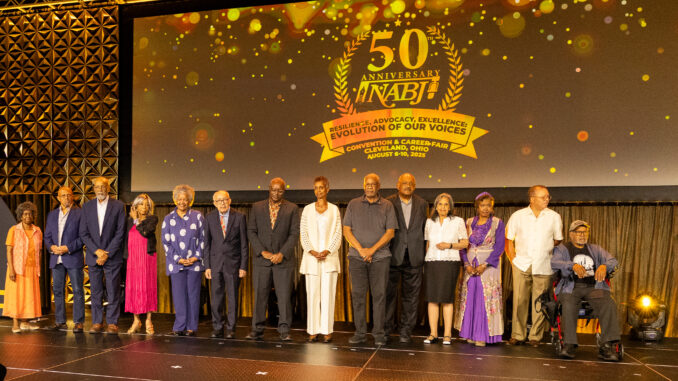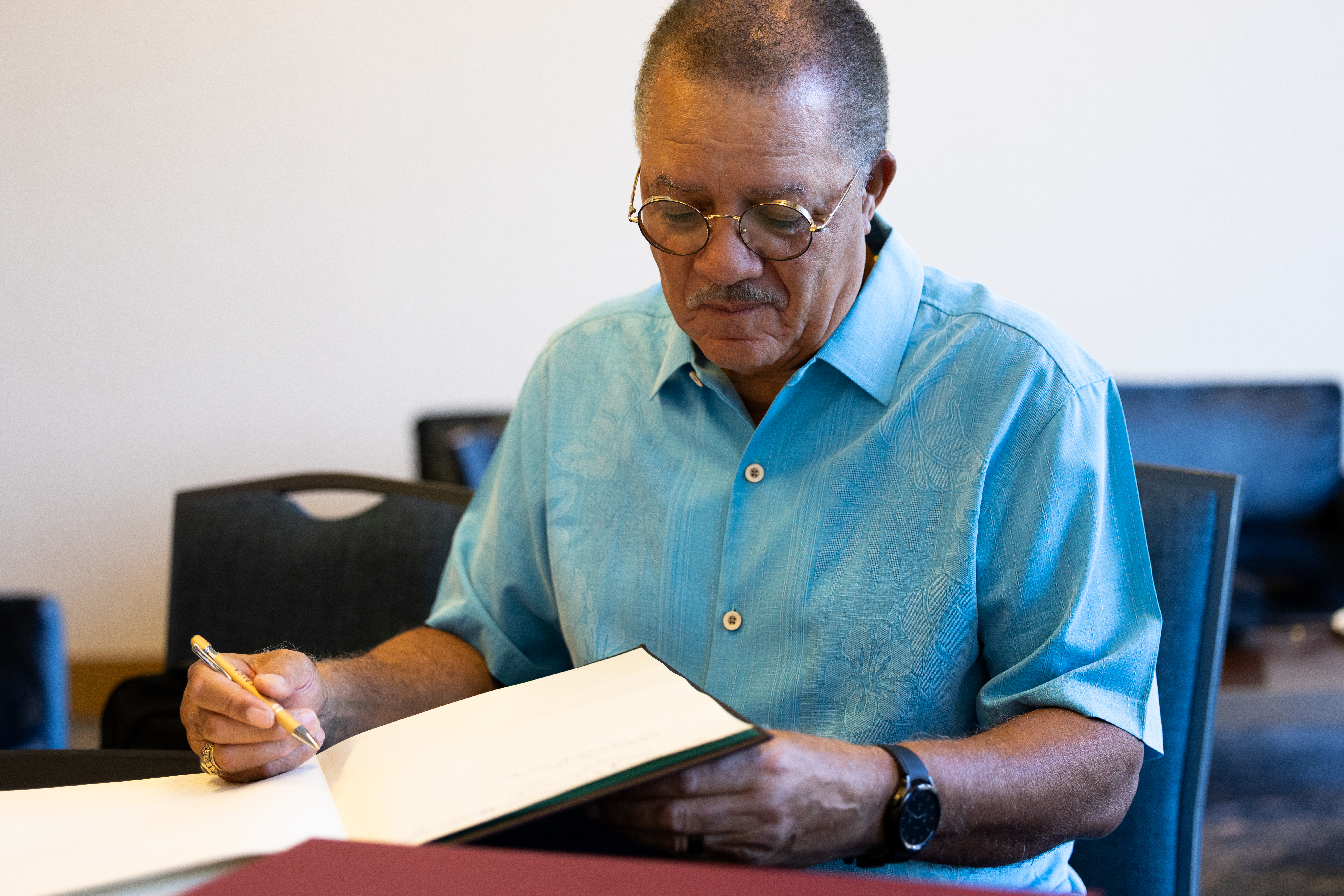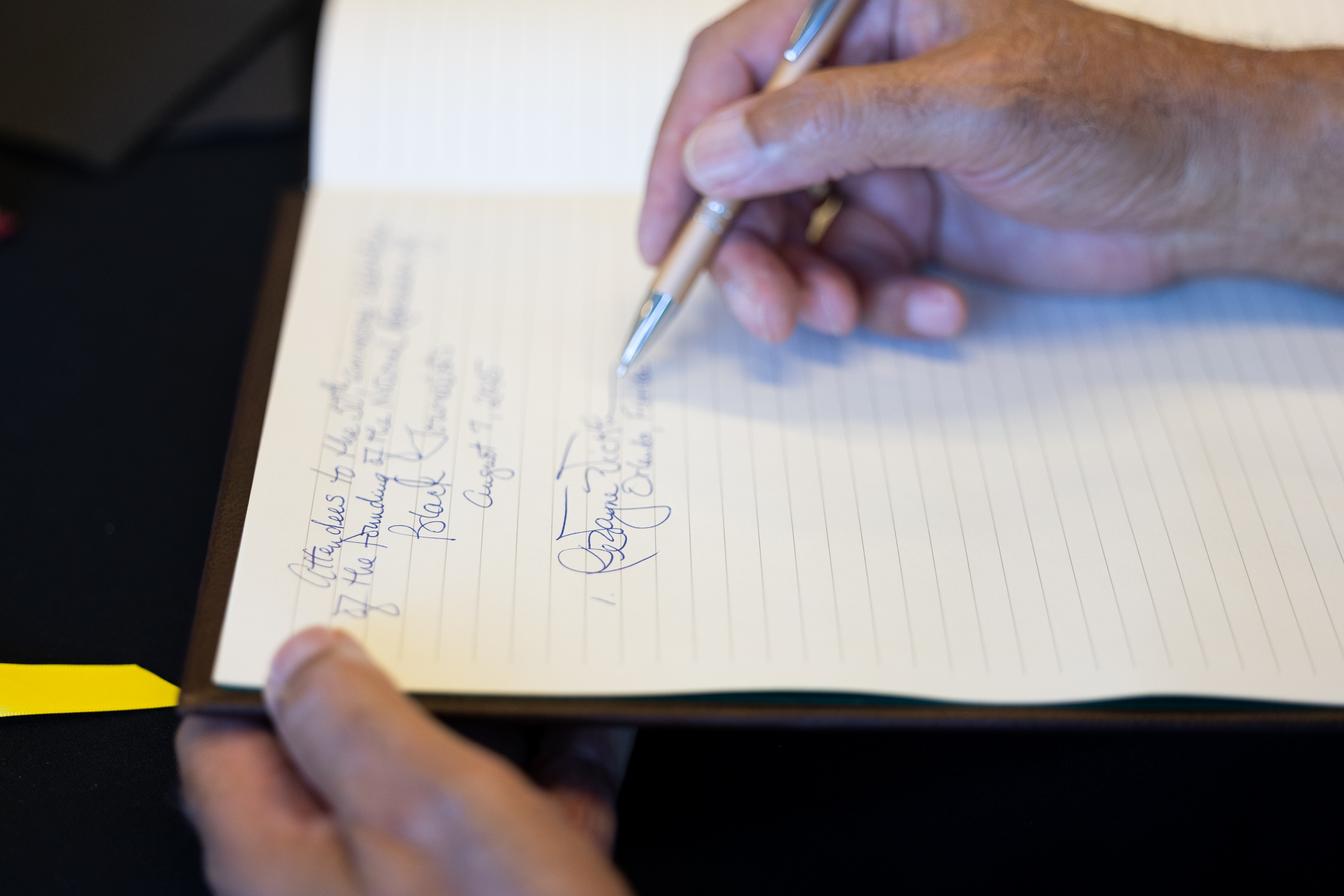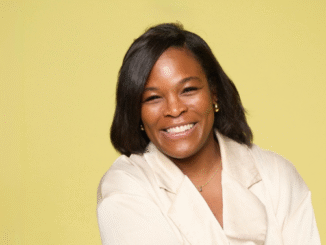
By Kimora Wong Sing, The Monitor
When DeWayne Wickham was in second grade, the public library served as his after-school caretaker. While his parents worked, the library opened his imagination and laid the foundation for a lifetime of storytelling.
“My first introduction to journalism came through listening to stories about my neighborhood,” said Wickham, one of the 44 founders of the National Association of Black Journalists (NABJ). “Curiosity, I tell people, is the trunk of the tree for a journalist.”
In 1975, he joined 43 other Black journalists in Washington, D.C., to take a bold step toward change, founding NABJ. Wickham also served as NABJ president from 1987-1989.
At the time, Black journalists were largely absent from American newsrooms.
“When I graduated in 1974, there were very few Black journalists in daily newspapers or on television,” Wickham said. “Getting access was the first challenge. Once in, staying and advancing, that was another mountain.”

The founding meeting drew bold personalities, including Chuck Stone, NABJ’s first president and a respected Philadelphia columnist, and Vernon Jarrett, a legendary Chicago journalist who once worked with W.E.B. Du Bois.
“Chuck and Vernon inspired me the most,” Wickham said. “Chuck was so respected, Black men facing arrest would go to the newsroom to surrender to him, believing he could protect them from police brutality. That tells you the kind of trust and power he held.”
Joe Davidson, a longtime NABJ member and founder, said his journey started in the eighth grade with a journalism class that sparked a lifelong interest.
“I never wanted to be at the center of things, but I always wanted to know what was going on,” he said.
Wickham recalled that not everyone at the founding meeting was ready to take the leap. Some feared backlash for aligning with a group focused on Black journalists.
“They were afraid of losing their jobs for associating with an organization for Black journalists,” said Wickham. “But those of us who did sign, it was a risk we were willing to take.”
Allison Davis, another founding member, didn’t know she was walking into history when she arrived.
“I was just visiting my parents in D.C.,” Davis said. “A friend dragged me to what I thought was a reception. Next thing I know, I’m at a meeting with 80 people and being appointed parliamentarian of a new organization.”
Davis quickly became a cornerstone in NABJ’s early years, helping draft its first constitution and serving on the executive board.
“The biggest obstacle was building a foundation,” she said. “Any organization needs that to survive.”
Sandra Weaver was 23 and one of just three Black journalists at the News Journal in Wilmington, Delaware, when she heard about the meeting that would shape her future.
“I didn’t realize we were founding a whole organization,” she said. “I was just excited to be around other Black journalists. That alone was a defining moment.”
Weaver recalled the early challenges of working in a newsroom where she often felt isolated.
“There were two Black men on staff, one in sports, one in the Washington bureau, and me,” she said. “So I still didn’t see anyone who looked like me in the newsroom every day.”

Weaver became active in NABJ, starting a local chapter in Wilmington and getting more involved after moving to Philadelphia. She rose through the ranks at The Philadelphia Inquirer, becoming managing editor and later vice president for news, a path marked by daily struggles and steady purpose.
“I had to fight to get the kinds of assignments that would land on the front page,” she recalled. “Then I was told I didn’t have enough front-page stories to qualify for a raise. But I wasn’t the one making those decisions.”
From planning early conventions, including the first at Texas Southern University after hotels refused to book NABJ without a credit line, to mentoring the next generation, the founders built something they hope will last.
Davidson, who hasn’t missed a convention since the beginning, said showing up was about more than networking.
“Our presence showed a level of dedication and determination in what kind of role we wanted journalism to play,” he said. “The sacrifices are outweighed by the benefits, so I never thought of it as a sacrifice.”
Now, 50 years later, the founders say the mission is more important than ever.
“I hope our 51st year is as tenacious and courageous as the first,” Wickham said. “We can’t just become a convention organization where people show up to party. If we don’t stay serious about our mission, we’ll wake up one day and realize our freedoms have been whittled away.”




Be the first to comment